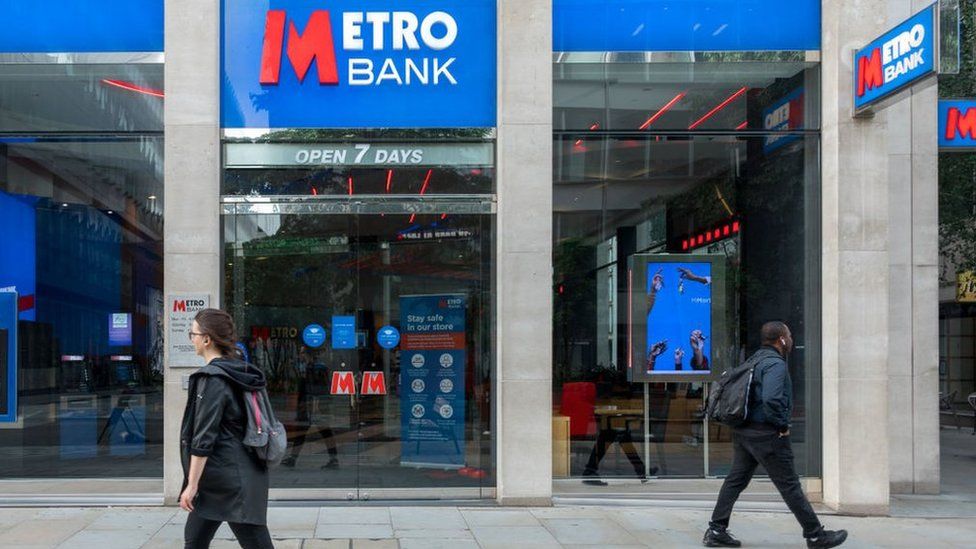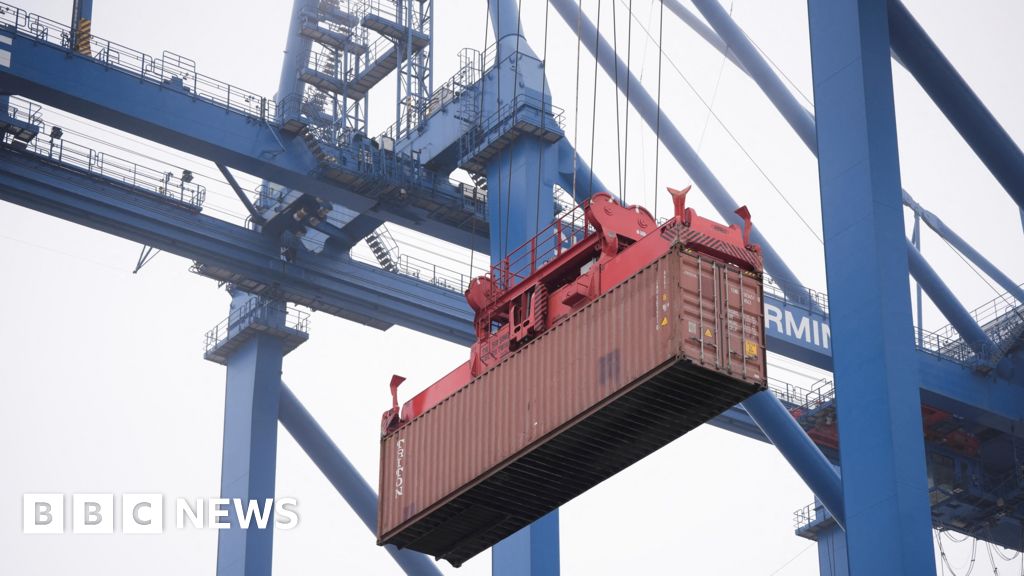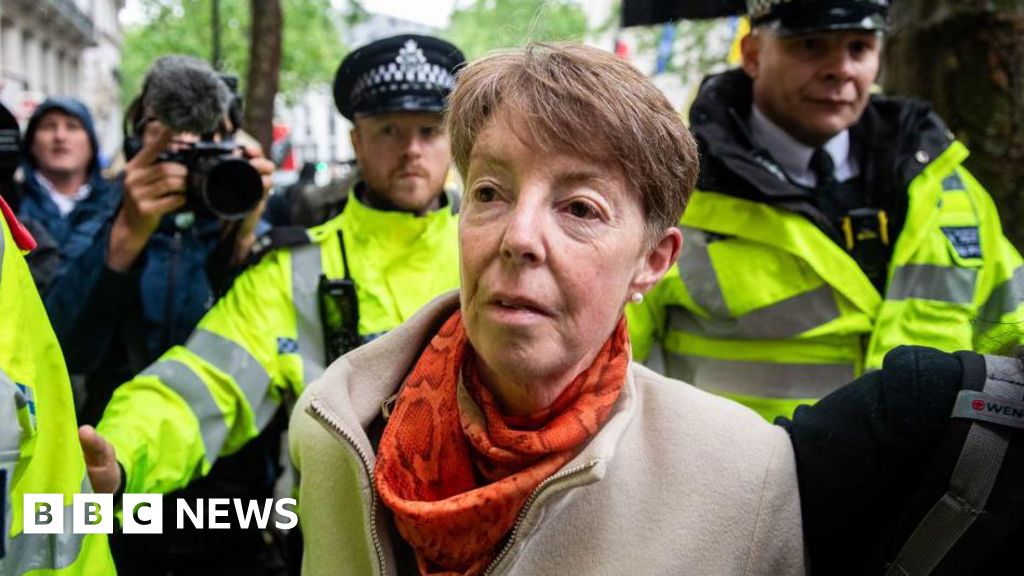ARTICLE AD BOX
 Image source, Getty Images
Image source, Getty Images
Metro Bank's shares slumped on Thursday after reports it is looking to raise millions to boost its balance sheet.
But bosses at the bank insisted that its finances were strong and its share price staged a recovery on Friday.
What's happening at Metro Bank?
Metro Bank was set up in 2010 as a "challenger" bank to traditional High Street lenders.
Its founder, American Vernon Hill, said at the time that he wanted to do things differently: so the bank offered customer-friendly perks like opening its doors seven days a week and even putting out water bowls and dog biscuits for customers' pets.
But it's faced a number of challenges in recent years after an accounting scandal in 2019, which led to some top executives, including Mr Hill, leaving the company.
Russ Mould, investment director at AJ Bell, said that since then the bank has been struggling "to get on a path to sustained profitability".
Metro Bank chair Vernon Hill, pictured with dog Duffy, founded the bank in 2010
More recently, it had asked City watchdogs for permission to use its own ratings system to value its mortgages and its assets. That would have freed up cash so it could go out and continue to grow its business.
But regulators turned down the request last month, saying that they wanted the bank to use an external rating system for now.
Reports emerged this week saying it was looking to raise money from investors, lenders and possibly considering selling some of its mortgages before it needs to refinance some of its debts.
Although it has been successful in winning 2.7 million customers, analysts said that - like other banks - it might have found it tricky to make money in the past few years when interest rates were at historic lows.
On Thursday it said it was still in a strong financial position and meeting all the requirements set out by regulators.
The BBC understands Treasury officials have been in touch with the Prudential Regulation Authority, the financial services regulator, which is monitoring the situation at the bank.
Metro Bank's share price started to slide last month after the decision by the Bank of England not to allow the bank to use its own internal measures to work out the risks attached to its mortgages.
Then, after the reports this week that it was looking to raise money, its shares tumbled by as much as 30% on Thursday, hitting lows of about 34p per share.
The shares recovered some ground on Friday. However, the bank's stock market value is now less than £100m, whereas it was valued at about £3.5bn at its peak five years ago.
Analysts suggested that the reports it could be looking to raise money through selling new shares might have spooked investors.
The lower the share price is, the more shares that Metro Bank needs to sell and the bigger the hit to existing shareholders, which can "become a bit of a vicious circle", Mr Mould told the BBC's Today programme.
Analysts are also on high alert for any problems in the banking sector following the collapse of US banks Silicon Valley Bank and Signature Bank in March this year.
They marked the two biggest bank failures in the US since the financial crisis of 2008 and their collapse sparked fears about the wider strength of the sector.
Is my money safe?
Metro Bank is operating as normal and does not face any immediate threat.
Customer deposits up to £85,000 are protected by the Financial Services Compensation Scheme, which guarantees that if a bank runs into trouble, depositors will get their money back up to that level.
That guarantee would cover the vast bulk of Metro Bank's £15.5bn in customer deposits.
While it has been reported that the bank is looking at selling some of its mortgages to other banks, homeowners don't face any immediate change. Some customers might end up having their loans managed by another bank in the future.
Who owns Metro Bank?
Metro Bank is a publicly listed company on the London Stock Exchange.
This means that its shares are sold to the public who become part owners, or shareholders, in the business.
Metro Bank's biggest shareholder is Spaldy Investments, with 9% of shares. It is an investment vehicle owned by Colombian billionaire investor Jamie Gilinski Bacal, who built one of the biggest banking empires in Latin America.

 1 year ago
19
1 year ago
19








 English (US)
English (US)